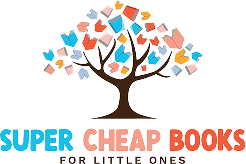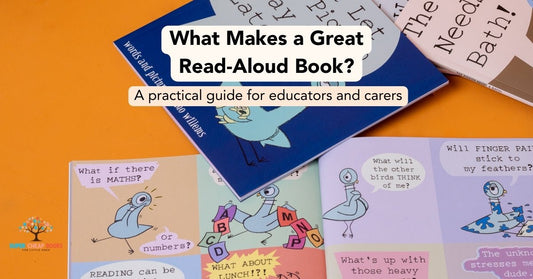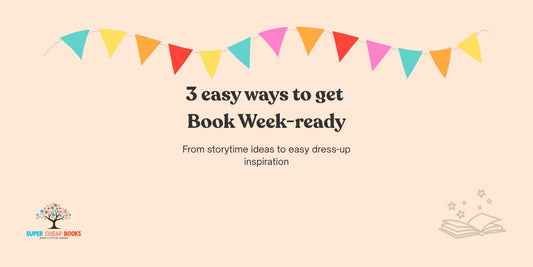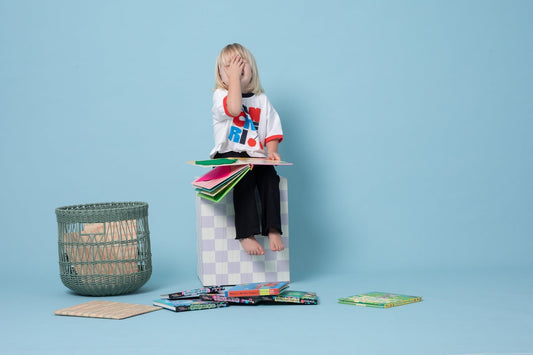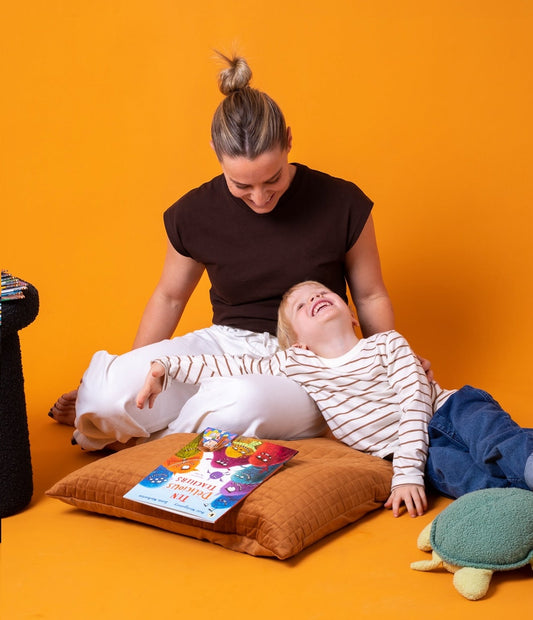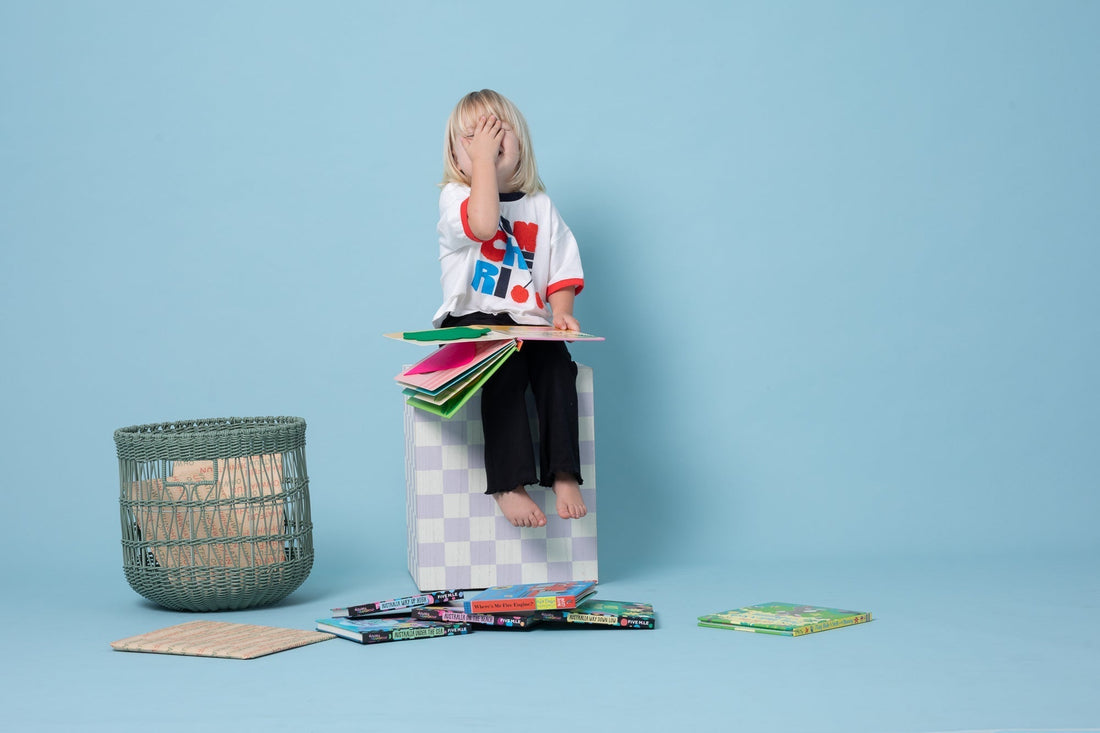
It’s school holidays, and whether you’re a parent, carer, or educator, it can be tricky to keep little ones engaged without defaulting to screens. But there’s one simple activity that builds brains, strengthens bonds, and brings joy to even the quietest afternoons: storytelling.
The magic of storytime isn’t just something we feel; it’s backed by science. Stories activate multiple areas of a child’s brain, laying the foundation for language, memory, empathy, and emotional regulation.
At Super Cheap Books, we’ve been curating quality books for early learning for over 40 years, and we’ve seen firsthand how early childhood storytelling helps little minds grow in the most meaningful ways. Here’s a closer look at what’s going on in the brain — and how to make the most of storytelling in your centre or home.
1. Stories fire up the whole brain
Reading a story activates more than just language centres; it lights up the parts of the brain responsible for processing emotion, sound, movement, and even visual imagery.
🧠 That means every time you read aloud, you’re giving a child’s brain a full workout.
Books with rich, descriptive language help children form mental pictures, imagine new situations, and start to understand concepts that extend beyond their lived experience.
Looking for a place to start? Try books like How Can We Be Kind? or My First Book of Happiness, which layer simple language with deeper meaning.
2. Storytelling boosts language and memory
Children don’t just listen to stories, they absorb them. That’s why repetition is so powerful. Familiar stories strengthen vocabulary, sentence structure, and memory recall.
🔁 Why repetition matters:
When a child hears the same story multiple times, they start to anticipate what comes next. This not only builds confidence but also supports working memory and verbal expression.
The next time you’re asked to read The Very Noisy Baby again and again, know you’re doing valuable neural work.
3. Narratives build empathy and perspective-taking
One of the most incredible things stories do is help children put themselves in someone else’s shoes. Whether it’s a character learning something new, feeling left out, or overcoming a fear, stories help children practise empathy in a safe, supported way.
❤️ That’s brain-building too.
Neuroscience shows that imagining what others feel activates similar brain networks as experiencing those emotions ourselves.
Books like Last Place Lin or The Human Kind Series gently introduce resilience and emotional growth, ideal for the preschool years.
4. Storytime supports emotional safety and connection
There’s something powerful about sitting down with a child and reading a story. It’s a moment of focused attention that supports emotional regulation, connection, and belonging, all critical for a child’s developing nervous system.
🤝 In early learning settings, these moments build trust.
They also give educators and carers insight into what a child is processing, which stories they gravitate toward, what they ask questions about, and how they respond emotionally.
5. Stories help shape identity and worldview
The books children read (or are read to them) shape how they see themselves and others. From understanding culture and kindness to exploring nature and big feelings, stories introduce the values we want our youngest learners to carry forward.
🌏 And the earlier this starts, the better.
Curated collections like our Australian Nature at Its Best or Human Kind series provide a starting point for important conversations, all in child-friendly language.
Looking for brain-friendly books this school holidays?
At Super Cheap Books, we make it easy to support early literacy, emotional development, and the benefits of reading to children — even when routines go out the window.
Our affordable book packs are handpicked for early learning and full of titles that spark curiosity, support language development through stories, and encourage emotional growth.
📦 Browse our bestselling bundles here
🎁 From just $3 per book, with flat-rate $9.95 shipping Australia-wide.
Because every child deserves to fall in love with books — and it starts with a story.
